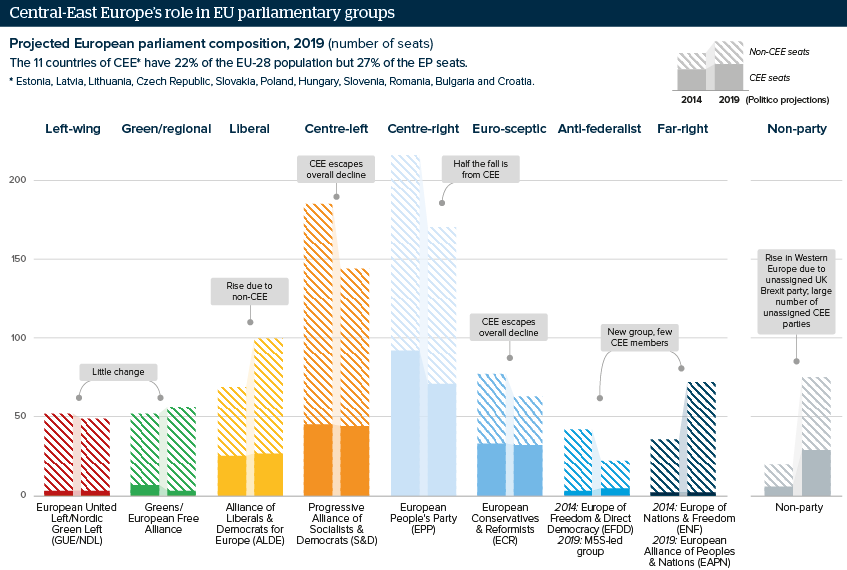CEE parties’ decline hurts EU parliament’s lead group
Centre-right weakness in CEE will mean centre-right weakness in EP but the region otherwise bucks EU-28 trends
Source: www.politico.eu/2019-european-elections/; Oxford Analytica
Outlook
The centre-right European People’s Party (EPP) is projected to lose 46 seats in the European Parliament (EP) elections, nearly half thanks to losses in Central-East Europe (CEE).
They provided a disproportionate share of the group’s seats in the Eighth EP (43%; CEE provides only 27% of all EP seats); the fall stems largely from a centre-right collapse since 2014, spread between Romania, the Czech Republic and Slovakia.
It takes 25 EP members from one-quarter of the EU-28 to form a group. The reconstitution of two groups will change their composition not their ideology, while Hungary’s Fidesz may leave the EPP.
Impacts
- The outgoing EPP-S&D ‘grand coalition’ may have only two-fifths of the seats in the new parliament, and will need new partners.
- The large number of new non-group members will bring instability until some or most are assigned to groups.
- The centre-left and liberal vote is holding up in CEE along with support for the Euro-sceptic group.
- The right-wing’s split between three groups, two of which get most of their support from outside CEE, will reduce its effectiveness.
